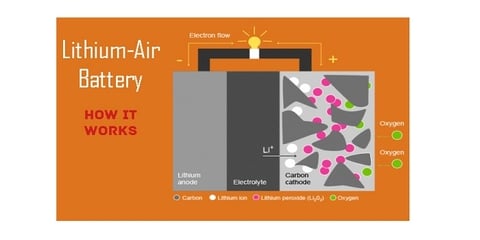In the 1970s, scientists first developed a promising class of rechargeable batteries in which lithium (Li) metal served as the anode and compounds that could reversibly host Li ions inside the lattice formed the cathode (1). Because Li is the lightest and most electropositive metal, this setup allows very high energy and power densities. However, repeated discharge-charge cycles cause growth of Li dendrites from the anode toward the cathode. Such dendrites can eventually penetrate the separator (placed to prevent contact between the electrodes) and touch the cathode, causing short circuiting of the cell and potentially leading to safety hazards (2–5). On page 1513 of this issue, Li et al. (6) show that Li dendrite growth can be suppressed by applying short, intermittent high-current pulses during battery use. These pulses lead to self-healing of the dendrites.
The growth of Li dendrites not only causes failure and overheating of the cell because of short circuiting but also consumes Li irreversibly from the electrolyte, resulting in irreversible cell capacity loss and electrolyte degradation. To circumvent these problems, scientists have developed graphite-based anode materials that can host Li ions reversibly inside the lattice at electrochemical potentials close to that of Li metal (2). This arrangement can address the Li dendrite problem to some extent but lowers the cell voltage and charge storage capacity of the battery, thus substantially reducing the energy and power densities of such batteries relative to Li metal-based batteries. Furthermore, even graphite-based anodes may sometimes suffer from dendrite formation because Li plating and stripping can still occur on the graphite surface (7), especially when the cell is operated at high current densities for applications demanding high power densities.
Other anode materials have also generated interest. For example, silicon (Si) can reversibly alloy with Li at higher operating potentials than that of Li metal and even than that of graphite, thus preventing Li dendrite formation. Furthermore, Si anodes have Li storage capacities similar to that of Li metal. However, they are mechanically unstable upon repeated alloying and dealloying, leading to a rapid fade in capacity with discharge-charge cycles (8).
In recent years, interest in renewable-energy storage, grid storage, and batteries for electric vehicles has led to efforts toward increasing the energy and power density of rechargeable batteries. This has led to renewed interest in Li metal anodes. Previous studies aimed at supressing the Li dendrite problem mainly attempted to contain the growing dendrites (9, 10) or change their growth direction (11). However, these approaches did not prevent dendrite growth and thus merely delayed the inevitable; that is, dendrites eventually touch the cathode (4, 5, 9–11).
This is where the work by Li et al. stands out because they use simple physical concepts to enable the dendrites to heal themselves before they even reach the separator. They do so by using a higher current density of optimized magnitude, which leads to the formation of finer, more densely populated dendrites on the Li surface (5) and in turn results in considerable heating of the dendrites. This heat does not melt the Li and is safe for the other cell components but increases the “mobility” of the Li atoms and causes rapid migration of the surface atoms from the dendrite tips to the valleys between them. This migration blunts the tips and smoothens the dendrites (see the figure). The smoothening also supresses further dendrite growth. This suppression of dendrite growth and smoothening of the Li metal surface not only prevents short circuiting but also reduces irreversible capacity loss during operation.
Li et al. demonstrate this approach in a cell with a Li anode and sulfur (S) cathode (a Li-S cell). Upon application of intermittent high-current pulses, the cell did not fail after a finite number of cycles. Furthermore, the cell showed improved reversibility as compared with that of most Li-S cells reported to date (12). In a control experiment without high-current pulses, short circuiting did take place because of dendrite-induced cell shorting.
Li et al.’s successful demonstration of this concept may lead to a paradigm shift in Li-based rechargeable battery technology. It should encourage researchers and engineers to investigate this aspect with a range of Li-based cells, using different cathode materials and larger cells, so that the scientific approach developed in the laboratory can be translated to technological application in the near future. The faster that happens, the sooner we shall have lighter batteries for greater energy and power output.


 The researchers liken the way in which the new material controls the deposition of lithium to the way that pegs control and direct the fall of metal balls in a pachinko game. Credit: Tara Foroozan and colleagues.
The researchers liken the way in which the new material controls the deposition of lithium to the way that pegs control and direct the fall of metal balls in a pachinko game. Credit: Tara Foroozan and colleagues.
